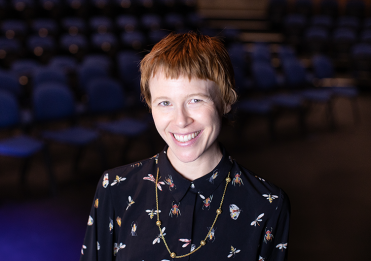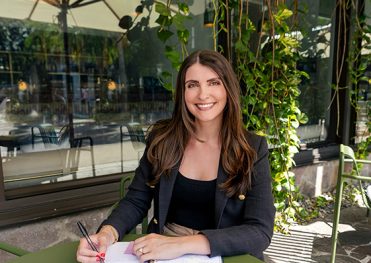In 2018, Dr Shannon was awarded the United Kingdom’s Young Australian of the Year Award in recognition of her oversight of community-led interventions for cervical cancer, violence, and non-communicable disease prevention in Australia, Kenya, Peru, Sierra Leone and the Republic of South Africa.
Dr Shannon’s expertise also extends to international health policy, having collaborated with the World Health Organisation and contributed to the Global Health 5050 initiative, allowing her to translate her academic insights to effect high-level change alongside colleagues and stakeholders.
Her current research initiative, Stema, focuses on better articulating informal systems of community health and wellbeing. Through insights gained from this process, Stema is also developing a framework to support communities to mobilise local resources, transform existing resources, and adapt external resources to improve their collective health and wellbeing.
‘We take a systems-and design-thinking approach to address broader (eco) systems’ failures in achieving human health and wellbeing in low resource settings worldwide. Through a deep understanding of local contexts and insights into informal community systems that operate to support and promote human health, we are able to better understand how communities use local resources, and how orchestration of community resources can help health interventions be more effective and sustainable.
‘This radically transforms how we think about, and approach solving, health challenges.’
In light of the current coronavirus pandemic, Geordie is also working on two initiatives to strengthen the health system of Kenyan and Peruvian communities. The first, Sauti Dada Africa, is a community-based organisation created to empower and fight for equal opportunities for all girls and women from marginalised communities in Kenya, while condemning harmful cultural practices.
‘In rural Kenya, the threat of COVID-19 is ever present. The normal fabric of life has been completely fractured: markets are closed; food importation systems are slow or broken; transport is challenging or too expensive; and children have been sent home from school.
‘There’s been a long period of drought in the region, meaning food can’t been grown locally, informal employment has been decimated and food prices are skyrocketing. There are no social safety nets and this means that poverty and famine are likely to kill more people than COVID-19 itself.’
Dr Shannon says Sauti Dada Africa wants to respond to this crises and ensure girls continue to be educated, are provided with regular nutritious meals, and informed of girls’ health and human rights knowledge.
As part of DB Peru, Dr Shannon’s second initiative aims to raise awareness and funds for the emergency situation unfolding in the jungle city of Iquitos, Peru—a land-locked city with more 500 000 people. Coronavirus has spread rapidly there due to over-crowded living conditions and poverty, overwhelming the healthcare system.
‘Hospitals are at three times their capacity with patients in open corridors, and supplies have depleted. Due to the lack of medicine, oxygen and protective equipment, nurses and doctors have been dying along with patients.’
Currently, quarantine restrictions have prevented normal travel between cities. To overcome this, DB Peru have partnered with researchers who are gathering supplies in Lima to have these items distributed via humanitarian planes.
Dr Shannon, along with her colleagues, are doing all they can to raise awareness and funds for the people of Iquitos.
‘The needs worldwide are great, but the isolation of this large city has made it particularly vulnerable and we need to act now.’

Dr Geordie Shannon (2002)




